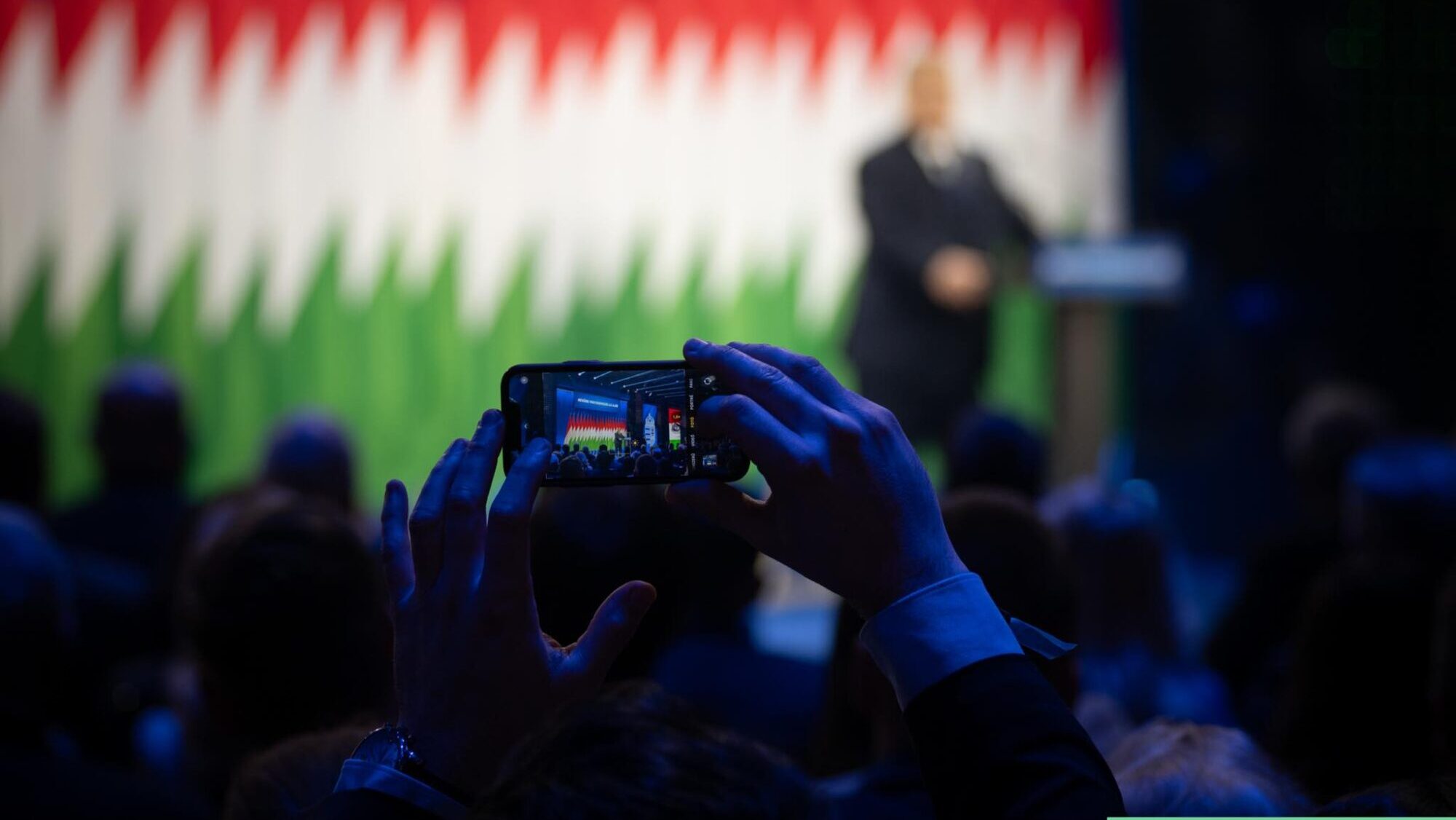
Hungarian PM Viktor Orbán giving his State of the Nation address, February 2024.
Photo: Viktor Orbán / Facebook, 17 February 2024.
Hungarian Prime Minister Viktor Orbán held his annual State of the Nation address on Saturday, February 17th, focusing in part on the coming EU elections and the challenges conservative forces will face during their attempt to reclaim Brussels from the leftist bureaucracy.
“The year ’24 can be a watershed moment.” Orbán said in his speech, referring to the ‘super election year’ when roughly half of the world’s population will have a chance to head to the ballots. “Global politics could look completely different at the end of the year than what it was at the beginning.”
The most important elections concerning the West, of course, will be the parliamentary in Brussels and the presidential in Washington. While most European leaders are increasingly anxious about the outcome in the U.S., Orbán has a more optimistic take.
“We don’t have a say in other countries’ elections,” the prime minister said, “but we would really like if Donald Trump would return to the presidential seat and would finally make peace in the eastern half of Europe.”
Budapest has been advocating for forcing both Russia and Ukraine to the negotiating table to prevent more deaths instead of endless weapon deliveries that only prolong the war. Orbán believes a change in Washington can finally open the door for a ceasefire in Ukraine. “It’s a tragedy that hundreds of thousands will have had to die by then,” the prime minister said.
The election in the U.S. will also coincide with Hungary’s six-month-long turn at the rotating EU Council presidency. The program is simple, Orbán outlined, “Make Europe Great Again—MAGA there, MEGA here.”
But first, a political shift needs to happen in the EU, during June’s European parliamentary elections. “Never has there been such a great distance between the politics of Brussels and the interests and will of Europeans,” Orbán said. “Europe needs to reclaim Brussels so that there would be a few Europeans among the Brusselites at last.”
According to the prime minister, the year 2023 was marked by the failures of the EU. The Ukraine strategy crumbles further by the day, illegal migration reaches record highs every month, the middle class is eroding under the weight of the cost of living crisis, and the EU’s green agenda—written by “climate fanatics”—is ruining the energy and agriculture sectors, fueling protests across the continent.
But despite the tanking satisfaction levels, the Eurocrats in charge won’t change course, Orbán warned. “It isn’t worth the time trying to convince them; you don’t shoe a dead horse,” he added. “Real change can only be brought about by a new European Right.”
In this, Hungary is not alone. The signs of a conservative revival can be seen all around Europe. Le Pen’s Rassemblement National is looking to win the EU elections by carrying a third of the French vote, Germany’s Alternative für Deutschland is the second most popular after the center-right, and similar tendencies can be observed in other EU countries as well. There is a real chance that the two national conservative, populist blocs—ECR and ID—will become the third and fourth largest parties in the European elections.
But there is an important caveat there, Orbán said, warning that the European project is not the enemy, but only those who have hijacked it for themselves. “We need to be careful not to throw out the baby with the bathwater. The new Right should not be an alternative to Europe, but a European alternative. This is how we should and must view the coming EU election.”
All things considered, Orbán is looking ahead to a challenging but successful year. Revived greatness in Europe and America, strengthened regional cooperation in Central Europe, and a sovereigntist turn in Brussels—“that’s what we ask for under the Christmas tree by the end of the year.”
